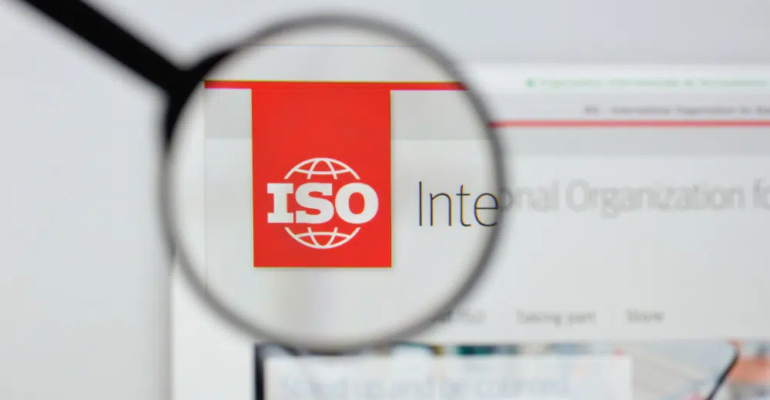How Do ISO Management System Standards Help The Business Organizations?
December 17, 2022 2024-03-15 8:27How Do ISO Management System Standards Help The Business Organizations?

How Do ISO Management System Standards Help The Business Organizations?
A strategically planned and efficiently implemented management setup in a business organization can contribute to operational and financial strength. It plays a pivotal role in developing corporate resilience in the long run. The international organization for standardization or ISO brings several certification programs, internationally-accepted management standards, and frameworks for organizations. All these aims at bringing critical benefits to the organization in more than one way. The ISO norms help synchronize the operations of products and services. It also makes a difference in streamlining the industry and reducing the barriers to carrying out international trade.
Benefits of the ISO management standards
The application of the ISO norms helps achieve uniformity and consistency for the organization, regardless of the industrial domain. Simply put, it enables a systematic and seamless operation for organizations to meet the global standards of management. Regardless of the size of the business, all large and small businesses can adhere to the framework and meet customer expectations for long-term success.
It gets convenient to monitor the overall health of the organization’s management setup and operations to ensure consistency and growth. Recognition of the growth opportunities is a by-product of the systematic ISO framework because you get a set of ideal practices to follow for utilizing the chances.
Different ISO standards – At a glance
The various ISO frameworks and certifications have unique benefits and offerings for different industries. But the generic advantages of these frameworks remain consistent across all industrial domains. Regardless of the ISO certification, you select, your organization can enjoy the following benefits –
- Competent and efficient utilization of professional resources
- Enhanced financial performance in the organization
- Efficient risk management and detection
- Optimal protection of information and resources
- Amplified functionality and capacity to deliver
- Quality improvement for services and products
- Value-added services for customers and stakeholders
The different ISO management systems for distinct industries are –
ISO 9001 (Quality Management), AS9100 (Aerospace), ISO/TS 16949 (Automotive), ISO 13485 (Medical Devices), ISO 27001 (Information Security), etc.
Comprehensive advantages of the certification
The ISO standards bring a transparent and easy-to-follow framework for all organizations with well-thought steps. The ISO body is a self-regulating, non-governmental body defining the standards to ensure premium quality, security, and efficiency of the system across all organizations. So, you can recognize the comprehensiveness of the offerings in the ISO framework. The QMS framework brought by ISO is broadly focused and thus helps any organization adhere to the framework, regardless of the size or industrial complexity. Hence having the certification makes your organization competent in an all-inclusive way.
Risk management and identification
All businesses have risks, and it is critical to maintain a strategy for mitigating the risks. While the risk management techniques may be unique and exclusive for different industries, the aim remains constant. The framework from the quality management system defined by ISO eases the requirements for risk mitigation, management, and recognition. Thus, certification is critical for all businesses. With improved planning and innovative strategies, ISO brings a solution to manage risks of all kinds.
Well-planned management setup
A well-planned management system plays a pivotal role in preventing problems from reoccurring. One can find a set of systems and strategic principles to analyze the future and recognize the flaws. The relevance of the management system meets the needs of all organizations, regardless of their industrial domain with a well-defined and step-by-step sequence of actions. Simply put, the ISO certification and management framework make the system transparent and void of management flaws.
A boost for the company’s operations
Efficiency is the backbone of the organization’s success. With an improved management system, an organization can avoid productivity reduction. It may not directly boost efficiency or production, but it brings a stimulating approach to all the resources connected with the organization. A systematic production flow is necessary for ensuring long-term success. A well-defined management system the essential support for boosting the company’s operation to the next level.
Impactful for the employees
Employee performance and overall productivity improve if they follow a clear set of regulations for optimal management. In fact, it also helps improve professional commitment as they collectively function to offer the highest quality products and services. As a result, the company gains through consistent performance and dedicated professionalism. With ISO principles, eliminate the skill gaps and boost performance systematically.
Enhance overall business control
The ISO management framework offers a well-defined structure for convenient monitoring, performance measurement, analysis, and evaluation of the existing system. You can also recognize the effectiveness of the existing quality management system and make changes for the better. Utilize and implement powerful tools for gaining insight into the existing business and management setup for making efficient business decisions.
Audit for obtaining the certification – Manage it efficiently. With so many benefits, you must consider getting certified with the ISO certification programs. Follow the systematic steps and select the audit services from IRQS to seek a professional solution for hassle-free management and attainment of the certification.


